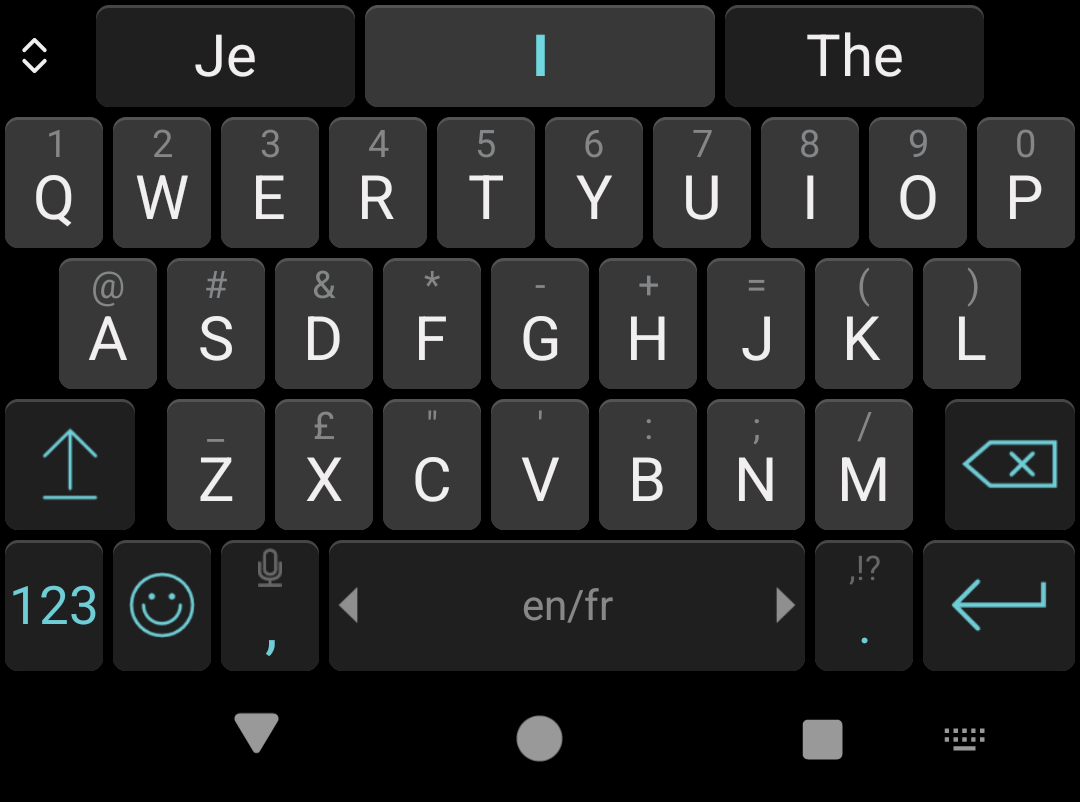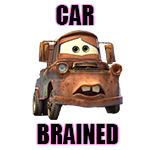|
Edgar Allen Ho posted:Kazakh only uses cyrillic because of a certain mustachio’d man of metal and his sparkling prison camps. Education is back to using the latin alphabet and the full switch is supposed to be completed by 2025. It’s underway atm in stuff like If you're in Astana right now, do you see it in random shops and places like that as well? I think the Turkic countries in Central Asia like taking their cue from Turkey, the OG alphabet switchers who did it all the way back during the early 20th century.
|
|
|
|

|
| # ? Apr 30, 2024 05:09 |
|
Phlegmish posted:If you're in Astana right now, do you see it in random shops and places like that as well? I think the Turkic countries in Central Asia like taking their cue from Turkey, the OG alphabet switchers who did it all the way back during the early 20th century. Itís pretty 50/50 random if people use latin or cyrillic. And of course english existing thereís a lot of qazaq russian english signage Most people know both alphabets. Itís at the ďyou chooseĒ level right now. Like I text my sister-in-law in latin and she texts me back in cyrillic. Itís dumb but it works. Thereís also a handful of people that use arabic to write qazaq, and they are consistently the nicest people on earth and will feed you some of the best food on this earth
|
|
|
|
Edgar Allen Ho posted:Itís pretty 50/50 random if people use latin or cyrillic. And of course english existing thereís a lot of qazaq russian english signage How... how do you even text with different alphabets? I guess you're switching between different keyboards on your phone to do that? Sounds like a pain.
|
|
|
|
People jump through different keyboards all the time now for emoji. In fact, the reason why the Japanese invented emoji was because they were already used to jumping around through a bunch of different character sets so adding a bunch of pictures was simple enough
|
|
|
|
Count Roland posted:How... how do you even text with different alphabets? I guess you're switching between different keyboards on your phone to do that? Sounds like a pain. I know that the question was about switching on the phone, which is about two button presses, but these keyboards should be very common all across former USSR. 
Weyd fucked around with this message at 11:33 on Jan 4, 2024 |
|
|
|
My keyboard has a button to quickly switch between keyboards. I have Danish, English (lol why though, it's just Danish but worse), Icelandic (for þ and ð), Arabic and IPA.
|
|
|
|
Why does your keyboard have so many upside down letters?
|
|
|
|
Hippocrass posted:Why does your keyboard have so many upside down letters?
|
|
|
|
Hippocrass posted:Why does your keyboard have so many upside down letters? Itís drunk on IPA.
|
|
|
|
Count Roland posted:How... how do you even text with different alphabets? I guess you're switching between different keyboards on your phone to do that? Sounds like a pain. Quite easily, you just hit the little globe on the bottom left    Modern technology is great But for real itís just a preference and mostly convenience, and like if my phone is already in Russia mode then it becomes казах instead of qazaq
|
|
|
|
Didn't the Turkish shift from Arabic to Latin cause a lot of functional illiteracy at the time, because the writing system people knew was suddenly no longer allowed?
|
|
|
|
There was actually a huge increase in the Turkish literacy rate in the decades following the switch, although there were obviously multiple reasons for that, and it's not a simple causal effect. One of the reasons they phased out the old writing system is that it was notoriously difficult and unintuitive for laypeople to master.
|
|
|
|
You might be thinking of the aggressive reform of the Turkish language that went with the alphabet change. Loanwords from Persian or Arabic were removed and replaced with new words from Turkish roots. The loanwords had been pervasive enough that Ottoman Turkish texts can be very difficult for contemporary Turkish speakers to understand regardless of the difference in scripts.
|
|
|
|
Phlegmish posted:There was actually a huge increase in the Turkish literacy rate in the decades following the switch, although there were obviously multiple reasons for that, and it's not a simple causal effect. One of the reasons they phased out the old writing system is that it was notoriously difficult and unintuitive for laypeople to master. not sure how much it applies to Anatolian Turkish/Oghuz family, but at IIRC least for Uzbek there are some aspects of the language that regular Arabic script is inherently bad at expressing due to the lack of vowel notation (hence why contemporary Uyghur script includes them) orthographies also just kinda decay in how well they reflect the language as spoken, so if it hasn't been reformed in a while you end up with a bunch of warts where you just have to know that the literal text doesn't express the sound
|
|
|
|
In KZ it was a bit different. The tiny handful of literate people used arabic up until the latin script was adopted for mass education. Then Joey Steelman and his good buddy Beria decided it must be cyrillic, and so it stayed for the next 80 years Definitely no russian chauvinism. Itís pure лоджик to to write that way. Edgar Allen Ho fucked around with this message at 19:27 on Jan 4, 2024 |
|
|
|
I vaguely remember looking at the Arabic Vs Latin letters for Turkish and concluding that yeah, mostly unmodified Arabic is terrible for Turkish. Some of it is the realisation that letter to sound correspondence is more important than keeping the sounds from the original language. Turkish C being a palatal stop is brilliant, especially over the common usage of "s or k depending on whatever". But that comes from a fairly modern tradition of basically finding the sounds of the language first and then assigning letters to them. As opposed to the traditional European model of taking the Latin alphabet and trying to squeeze whatever sounds into the existing letters, preferably without any changes to the alphabet.
|
|
|
|
It's kind of darkly funny we're discussing the merit of script systems for various languages while posting in English, a language notorious for its baffling spelling rules, written in Latin script, a script that's historically awful at handling languages with complex vowel systems like in Germanic languages.
|
|
|
|
the more ambiguity and edge cases in a language the better imo
|
|
|
|
Pope Hilarius II posted:It's kind of darkly funny we're discussing the merit of script systems for various languages while posting in English, a language notorious for its baffling spelling rules, written in Latin script, a script that's historically awful at handling languages with complex vowel systems like in Germanic languages. English doesn't have a complex vowel system, unless you're a stupid-rear end Anglo linguist who thinks diphthongs and triphthongs are what they aren't and that the fact that long and short vowels are phonetically somewhat different is somehow important when writing language down, when it's not.
|
|
|
|
Idk if english has complex vowels but one of my favourite pastimes is explaining to my fellow americans the difference between e, ť, and е (pronounced ye)
|
|
|
|
triphtphpthphthphthongs
|
|
|
|
Pope Hilarius II posted:It's kind of darkly funny we're discussing the merit of script systems for various languages while posting in English, a language notorious for its baffling spelling rules, written in Latin script, a script that's historically awful at handling languages with complex vowel systems like in Germanic languages. in a thread about uh... flags, to boot 3D Megadoodoo posted:the fact that long and short vowels are phonetically somewhat different is somehow important when writing language down, when it's not. they are though? the purpose of an alphabet is to represent sounds such that you can correctly pronounce an unfamiliar word. the fact that written english doesn't represent different vowels with different letters is an artifact of it having infinity dialects and no spelling reform ever. written english words are like halfway to being hanzi where it's just an arbitrary visual symbol that you mentally translate to your particular dialect's pronunciation comparatively, both Belarusian and Russian vowels are subject to akanye rules: an "о" may reduce to an "а" sound depending on what syllable is stressed, and that stress may change depending on what prefixes/suffixes to attach to a word root. Russian writes the original vowel; Belarusian writes the reduced one. the difference absolutely matters, but for Russian you can't determine the correct sound from the letter in isolation and have to infer it from the reduction rules
|
|
|
|
Qtotonibudinibudet posted:the purpose of an alphabet is to represent sounds such that you can correctly pronounce an unfamiliar word. Is this actually the case, or is an alphabet (like an ideographic writing system) primarily intended to convey meaning to a reader, and may guide pronunciation as a common way of using it in the context of a spoken language? Iíd never understood alphabets to be in service of speaking as their primary function, but I am definitely not a linguist.
|
|
|
|
The other thing is it can only ever be an arbitrary visual symbol that you mentally translate to your particular dialect's pronunciation so long as different dialects exist.
|
|
|
|
Spelling in english is more about the history of the word than pronunciation
|
|
|
|
reignonyourparade posted:The other thing is it can only ever be an arbitrary visual symbol that you mentally translate to your particular dialect's pronunciation so long as different dialects exist. I mean yeah, there's no iconic link between the letter and the sound obviously, but there's no rule saying that dialects have to be spelled the same way. You can spell the words how they're pronounced in your dialect, using common letters (or even supplementing your own). For example, i might spell a word "drøs" while a Jutlandic person spells it "drys" because that's how we say that word. Eventually, you probably get enough variation that written Indian English is not readable to rural Texans, but that's pretty much the same as the spoken varieties.
|
|
|
|
BonHair posted:I mean yeah, there's no iconic link between the letter and the sound obviously, but there's no rule saying that dialects have to be spelled the same way. You can spell the words how they're pronounced in your dialect, using common letters (or even supplementing your own). For example, i might spell a word "drøs" while a Jutlandic person spells it "drys" because that's how we say that word. Sure there's no rule saying that dialects have to be spelled the same way, but incidentally everyone finds it incredibly useful for dialects to be spelled the same way
|
|
|
|
Subjunctive posted:Is this actually the case, or is an alphabet (like an ideographic writing system) primarily intended to convey meaning to a reader, and may guide pronunciation as a common way of using it in the context of a spoken language? that is generally how intentional alphabets are designed, yes: they represent spoken sounds because this is a very effective means of spreading literacy. phonics works yo not all alphabets are intentionally designed (you definitely get plenty of poo poo like the aforementioned turkic adoption of arabic for turkic sounds because they encountered arabic writers that already had an alphabet; easier to just borrow that and make do than make your own from whole cloth, especially if you gotta do business with them anyway) and not all alphabet designers necessarily get it right, but something like, say, hangul is clearly tailored to the sounds of a specific language conveying meaning is the opposite approach, and arises in situations like the sinitic languages, where you've got a ton of people that need to communicate across a lot of very different BonHair posted:Eventually, you probably get enough variation that written Indian English is not readable to rural Texans, but that's pretty much the same as the spoken varieties. english (maybe also french, but i have no experience with the francophone world) does this weird thing where it preserves "correct" orthography, so it remains entirely readable in that sense, but language diverges in other ways--i wish i could find it again, but i definitely encountered some local audience indian english opinion piece that was just bizarre because it was clearly using very correct spelling and grammar, but the conventional sentence structure, word choice, and... idk, overall higher-level aspects just felt incredibly foreign. "do the needful" on steroids, essentially: you recognize all the words, but have no idea why they're being used that way
|
|
|
|
reignonyourparade posted:Sure there's no rule saying that dialects have to be spelled the same way, but incidentally everyone finds it incredibly useful for dialects to be spelled the same way What are you basing this on? Just because that's what English (and French and Danish) does it doesn't make it right. Norwegian does quite well with dialectal spelling for example.
|
|
|
|
It's actually pretty handy to be able to read things written from all over the planet without having to reinterpret based on accent, and I'm not sure what changing your spelling around to be less readable would "solve" other than some vague aesthetic matching. Native English speakers tend to already have some sort of aesthetic in their brains as to what spelling should look like anyways. Multipul peepul hav traid tu simplifai and rashonulaiz spelling and it gets rejected everee taim. It just don't look right. I've seen people talking about written Chinese spanning across basically multiple spoken Chinese languages, which you couldn't really do if you decided to warp what you're writing to differentiate yourself from the others for the sake of some autistic desire to have letters follow the same rules that will never stay the same anyways because language is constantly warping in weird ways.
|
|
|
|
3D Megadoodoo posted:English doesn't have a complex vowel system, unless you're a stupid-rear end Anglo linguist who thinks diphthongs and triphthongs are what they aren't and that the fact that long and short vowels are phonetically somewhat different is somehow important when writing language down, when it's not. This was probably meant as a snarling putdown of sorts but you couldn't be more wrong. English isn't my first language and I was actually only considering monopthongs, of which e.g. RP English has 13 (and 5 have a missing short/long partner so that's the first bit where you went wrong). Like in German and Dutch, long and short vowels* have different qualities to the extent that they alter the meaning of words, and in fact L2 speakers often struggle quite a bit with getting them right. That's where that age-old Internet joke comes from about the Italian tourist who wants "sheet/poo poo in the bed" because Italian doesn't have and [ɪ/i]-distinction. Phonetic distinctions either matter or they don't, they can never matter "somewhat". For instance, Scots often replace [u] with [y] but while these are qualitatively different vowels, there the distinction doesn't matter because to English ears, [y] is an allophone of [u]. The one thing you got correct though is that I'm a stupid-rear end linguist. *You can argue that Dutch and General American English don't actually even have true long vowels so that the qualitative distinction becomes even more important
|
|
|
|
Qtotonibudinibudet posted:english (maybe also french, but i have no experience with the francophone world) does this weird thing where it preserves "correct" orthography, so it remains entirely readable in that sense, but language diverges in other ways--i wish i could find it again, but i definitely encountered some local audience indian english opinion piece that was just bizarre because it was clearly using very correct spelling and grammar, but the conventional sentence structure, word choice, and... idk, overall higher-level aspects just felt incredibly foreign. "do the needful" on steroids, essentially: you recognize all the words, but have no idea why they're being used that way The biggest example I've encountered of this was trying to read some Communist essay or something a couple decades ago. It was all using standard English words, but it was clearly written in some sort of hyperspecialized jargon that I had no idea how to even begin to unpack. Pope Hilarius II posted:This was probably meant as a snarling putdown of sorts but you couldn't be more wrong. English isn't my first language and I was actually only considering monopthongs, of which e.g. RP English has 13 (and 5 have a missing short/long partner so that's the first bit where you went wrong). Like in German and Dutch, long and short vowels* have different qualities to the extent that they alter the meaning of words, and in fact L2 speakers often struggle quite a bit with getting them right. That's where that age-old Internet joke comes from about the Italian tourist who wants "sheet/poo poo in the bed" because Italian doesn't have and [ɪ/i]-distinction. Phonetic distinctions either matter or they don't, they can never matter "somewhat". For instance, Scots often replace [u] with [y] but while these are qualitatively different vowels, there the distinction doesn't matter because to English ears, [y] is an allophone of [u]. Yeah, saying English doesn't have more than 5-or-6 vowels is just objectively wrong. Is there any language which writes the proper number of vowels phonetically? Besides the Romance languages written phonetically like Spanish that actually have 1-1 correspondence between phoneme and grapheme in Latin script, but something with a bunch of vowels on the order of English?
|
|
|
|
There's 5 vowels that make up to 16 sounds before you get into the distinctions that are less crucial more just dialectical. You can still manage if you have only have like 6 of the sounds down though. And that's without counting things like emphasis, which we don't really think about much because we don't actively use as a tool like some other languages do, it's just kinda built into some words. But I think all languages in a way really are just using their own phonemes that are usually not going to match the phonemes of other languages one for one, they'll be slightly off, mixed a bit with other phonemes, sometimes made with a different part of the mouth. That can also just develop from individuals developing their own way of talking without being careful to follow their peers' example, talking's instinctive, but it's not an exact science. And that's also why language is constantly transmuting. Most people don't try very hard to get their pronunciation down, and many are reticent to bend the way they speak very much from what they initially learned and is lodged into the core parts of their brains.
|
|
|
|
I can't believe the North American English Dialects Map stopped updating in 2017.
|
|
|
|
Qtotonibudinibudet posted:they are though? the purpose of an alphabet is to represent sounds such that you can correctly pronounce an unfamiliar word. the fact that written english doesn't represent different vowels with different letters is an artifact of it having infinity dialects and no spelling reform ever. English has had several spelling reforms. They haven't worked very well overall. Part of the problem is dialects, but it's also that relatively few English words even have a single pronunciation within the dialect - most have several correct but contextual pronunciations, and trying to capture that in written english would be a headache, so with a few exceptions (like common contractions) we usually don't even bother to try.
|
|
|
|
GlyphGryph posted:English has had several spelling reforms. They haven't worked very well overall. Part of the problem is dialects, but it's also that relatively few English words even have a single pronunciation within the dialect - most have several correct but contextual pronunciations, and trying to capture that in written english would be a headache, so with a few exceptions (like common contractions) we usually don't even bother to try. Which is a lame excuse. Languages like Dutch and Italian have many dialects but have a fairly decent spelling/pronunciation-relationship. The point of spelling is not to accurately capture every possible idiolect but to find a reasonable middle ground to represent standardised pronunciation.
|
|
|
|
Funny that people are shocked at people switching scripts when this is so common, often done in non-Latin countries even in the same sentence. I personally use SwiftKey with Hebrew, French and English but I swap to Google Keyboard for Japanese because I found it works better. Only issue with combining languages is that some programs can't manage sentences in both RTL and LTR well. I used to use swipe right on the space bar for French and left for Hebrew (English being central as I'm sure the aforementioned Americans would appreciate). I ended up just switching to a combined English/French one since it works and switching between QWERTY and AZERTY caused frequent mistakes. 
|
|
|
|
Generally if you're ever going to regulate an entire language, it'll take the form of one dialect with the most ties to power asserting its dominance over the others, which English can't do because there's too many big anglophone countries who wouldn't want to bend over to somebody else, so any big attempt at reforming spelling would just mean the introduction of a new standard to be contemporary with the others. Creating a unified Italian language was a big nationalism thing going hand in hand with the unification of Italy, you couldn't really do it if 40-85% of Italian speakers were outside of the country. And at this point, the English language as it is now has been integrated into the majority of programming languages, so a big chunk of English can't be reformed and will continue to exist even if all majority english-speaking countries could agree on a standard. Dutch similarly has a much smaller geographic distribution, and the biggest foreign Dutch population already drifted away as its own language. But aside from that, among english speakers, we're too used to the spelling system that already exists and all prospective reformers have immediately run into the issue that their new system looks horribly horribly wrong.
|
|
|
|
I mean programming languages go through a compiler or at least parsed into abstract syntax trees before actually running so you could very easily implement dialects/regional spelling if you really wanted to return aye instead of true. Map tax for the derail (I made this as the first thing that came to my head, apologies as the pop data is from 2020 and the survey is from 2023):  https://survey.stackoverflow.co/2023/#key-territories-all-countries
|
|
|
|

|
| # ? Apr 30, 2024 05:09 |
|
This is the flag thread, not the politically-loaded maps thread. It has essentially the same people talking about essentially the same things, so I understand your confusion
|
|
|

































